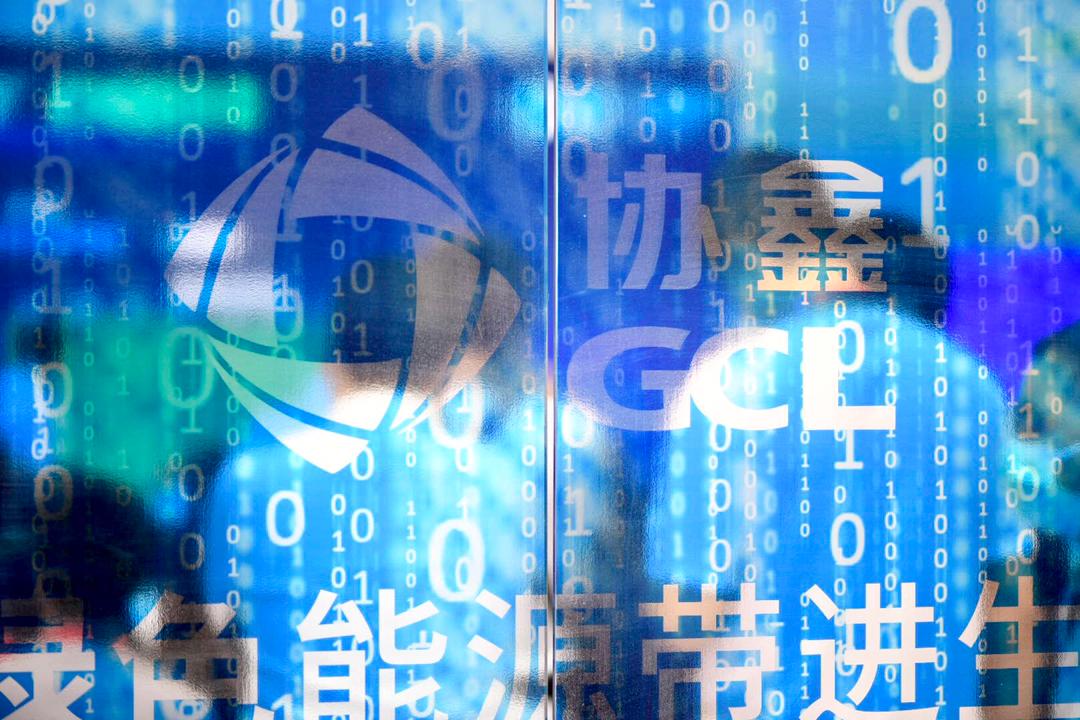Trading in the stock of Chinese polysilicon manufacturer GCL-Poly was restored yesterday morning after the company explained, on Friday, how it had met the necessary requirements in a market update which also revealed more details about a 2019 project pre-payment which prompted former auditor Deloitte to walk away from the business.
GCL on Friday said “junior representatives” of state-owned Sinomec Refinery & Chemical Corp, which had accepted a RMB510 million (US$79.7 million) pre-payment from it, for a silicon production project, had inaccurately told Deloitte investigators a large slice of the money had been moved on, because they wanted to dissuade the manufacturer from cancelling the project contract.
Deloitte Touche Tohmatsu, which refused to sign off GCL Poly's 2020 accounts after discovering the pre-payment, subsequently walked away from the solar manufacturer. GCL explained the matter on Friday by stating a subsequent, second investigation into the affair prompted staff at the parent company of poly project lead contractor Sinomec to dismiss the claims which had previously been made to Deloitte.
pv magazine November
“Some of the more junior representatives [of Sinomec] had previously told Deloitte that the SOE [state-owned enterprise] lead contractor had transferred a significant portion of the pre-payment to the sub-contractor in order to increase the apparent cost of terminating the EPC [engineering, procurement and construction] contract,” GCL told the Hong Kong exchange on Friday. The polysilicon and solar wafer maker offered no explanation as to why that claim had been made.
Deloitte investigators had been told, in interviews with staff from Sinomec and sub-contractor for materials supply Shanghai Chuanghong Technology Co Ltd, that the former had paid “more than RMB400 million” (US$62.5 million) from the pre-payment to the latter. Shanghai Chuanghong, which had originally been brought in by Sinomec had, in turn, paid around RMB200 million to an unnamed Japanese supplier for “certain raw materials,” the interviewees told the auditor.
The latest revelation about the pre-payment emerged as trading in GCL-Poly shares resumed on the Hong Kong stock exchange this morning, following a seven-month halt caused by the lack of accounts for 2020.
Explaining the economic rationale behind the Sinomec pre-payment, GCL said on Friday, it had not had enough cash to finance a production base for its innovative, less-energy-intensive granular polysilicon material in 2019 but then signed an EPC contract with Sinomec after the latter offered to do the work in return for just the pre-payment, which amounted to around a quarter of the project's expected cost.
By the second half of last year, GCL said on Friday, the granular silicon technology had advanced enough to separate out parts of the production process such that the associated facilities could be constructed by separate EPCs, and that change was one of two factors which persuaded GCL to end the contract with Sinomec and instead choose separate lead contractors, to protect its confidential technology. The second factor, GCL said, was that the manufacturer had generated enough cash from two fundraising exercises to turn to other providers by that point.
Proceeds
The GCL-Poly board at the time cited granular silicon production as one of the reasons behind its HK$4.2 billion (US$540 million) shares issuance in January, but had stated paying down debt and “general corporate purposes,” had prompted a similar, HK$264 million (US$33.9 million) exercise in June last year.
Deloitte refused to sign off GCL's 2020 figures when it uncovered the pre-payment which, it subsequently emerged, had been signed off by Jiang Wenwu, general manager of the GCL business responsible – Jiangsu Zhongneng – despite the fact Jiang only had clearance to authorize deals worth up to RMB100 million under GCL policy.
GCL also revealed on Friday, Jiang, who stepped down as a director of the business on June 18, had not been general manager of Jiangsu Zhongneng since March 2020.
This content is protected by copyright and may not be reused. If you want to cooperate with us and would like to reuse some of our content, please contact: editors@pv-magazine.com.




By submitting this form you agree to pv magazine using your data for the purposes of publishing your comment.
Your personal data will only be disclosed or otherwise transmitted to third parties for the purposes of spam filtering or if this is necessary for technical maintenance of the website. Any other transfer to third parties will not take place unless this is justified on the basis of applicable data protection regulations or if pv magazine is legally obliged to do so.
You may revoke this consent at any time with effect for the future, in which case your personal data will be deleted immediately. Otherwise, your data will be deleted if pv magazine has processed your request or the purpose of data storage is fulfilled.
Further information on data privacy can be found in our Data Protection Policy.